Joining Science and Theology to End Plastic Pollution, Protect Health, and Advance Social Justice
Friday, October 4 | 4:00pm-6:30pm | Gasson Hall and Saturday, October 5 | 8:30am-6:30pm | Corcoran Commons

Plastics are manufactured chemical materials produced from fossil carbon–gas, oil, and coal. Plastics have supported extraordinary advances in virtually every area of human endeavor, and they have made our daily lives very convenient. However, is now clear that plastics are neither as safe nor as inexpensive as they seem. Plastics’ benefits come at great and increasingly visible costs to human health, the environment, and social justice.
The Minderoo Monaco Commission on Plastics and Human Health, anchored at Boston College, found that plastics harm human health at every stage of their life cycle – from extraction of the crude oil, fracked gas, and coal that are plastics’ principal feedstocks, through transport, manufacture, use, recycling, and on to disposal into the environment. Plastic production further endangers health by releasing nearly 2 gigatons of CO2 to the atmosphere each year, as much as the annual contribution of Brazil, thus driving climate change and magnifying its consequences.
Plastics’ harms fall disproportionately on the poor, minorities, and the marginalized. Groups at particularly high risk are fossil fuel extraction workers; chemical and plastic production workers; informal waste and recovery workers; persons living near pipelines, rail lines and compressor stations, such as the community of East Palestine, Ohio; people living in “fenceline” communities adjacent to plastic production facilities; Indigenous communities, and people in the Global South. Children are at very high risk. These groups did not create the current plastics crisis. They do not profit from it. They lack the power to address it. Yet they suffer its most severe consequences. They are victims of social and environmental injustice on a planetary scale.
Continuing exponential increases in plastic production are the main driver of plastics’ worsening harms. Annual output has grown from under 2 million tons in 1950 to more than 400 million tons today. Output is projected to double by 2040 and treble by 2060 as fossil fuel producers pivot to plastic in anticipation of decreasing demand for fossil energy. Disposable, single-use items account for about 40% of current production and contribute disproportionately to the accumulation of plastic waste. Plastic waste is ubiquitous in the environment, where it breaks down into chemical-laden micro- and nanoplastic particles (MNPs), which damage ecosystems and are responsible for widespread human exposure.
In response to the worsening plastics crisis, the U.N. Environment Assembly voted in March 2022 to develop a Global Plastics Treaty. The goal is to reduce plastic pollution across the entire plastic lifecycle. An Intergovernmental Negotiating Committee has met four times, and their fifth and final meeting is scheduled to take place in Korea in late November. The U.N.’s intent is to finish drafting the treaty by the end of 2024.
The Minderoo Monaco Commission argued that inclusion in the Global Plastics Treaty of a mandatory, legally binding global cap on the production of new plastic will be essential for protecting human health and advancing social justice. The Treaty needs also to include restrictions on single-use plastics, and comprehensive regulation of plastic chemicals.
What Will This Conference Add?
This Conference is based on the recognition that the plastics crisis is more than an environmental challenge. Like climate change, air pollution, biodiversity loss, and escalating inequality, the plastics crisis is also a social and ethical challenge. It is another example of humanity’s reckless strip‐mining of the earth’s resources and mortgaging of humanity’s future for short‐term economic gain.
Building on this recognition, the purpose of this Conference is to bring moral clarity to the conversation on plastic pollution. We will do this by:
- Examining recent, rapid increases in plastic production and plastic pollution through the lens of ethics;
- Proposing just, scientifically sound remedies to the plastic crisis;
- Producing a Declaration at the conclusion of the conference that urges the negotiators for the UN Global Plastics Treaty, and especially the delegates from high-income countries, to work together to produce a legally binding, just, and equitable Treaty that prioritizes the protection of human rights and the protection of health for all people; and
- Producing a book based on the discussions at the conference that examines the ethical foundations of the plastics crisis and serves as a reference for those who wish to develop solutions that are scientifically sound, just, and ethical.
The Conference will be held in-person on the Chestnut Hill campus of Boston College and it is open to the public. Registration is required for all attendees. Undergraduate and graduate students are invited to submit posters that will be on display throughout the conference. Please see the Call for Posters tab
Cosponsors:
- The Minderoo Foundation
- The Centre Scientifique de Monaco
- MMHBO Fund at Schwab Charitable
Boston College cosponsors:
- The Theology Department
- The Program for Global Public Health and the Common Good
- The Institute for the Liberal Arts
- The Clough School of Theology and Ministry
- The Connell School of Nursing
- The School of Social Work
- The Schiller Institute for Integrated Science & Society
Global Public Health at Boston College
Global public health is the science and art of promoting good health, preventing disease and extending longevity in countries around the world. A substantial body of scholarship in global public health is directed toward elucidating the social, political, economic and environmental factors that influence patterns of health and disease and drive disparities in health.
Global public health is rooted in and aims to promote social justice. It aligns closely with the Jesuit Catholic tradition and with Pope Francis’ teaching in his encyclical letter Laudato Si’ (2015) calling upon all people to care for our planet, end social and economic injustice, prevent the disease, disability and premature death that fall disproportionately upon the poor.
A unique and distinctive aspect of the program for Global Public Health and the Common Good at Boston College is our strong focus on the ethical, moral and legal foundations of global public health. This emphasis reflects our foundation in the Jesuit, Catholic tradition of service and our commitment to a preferential option for the poor.
The program spans multiple schools across Boston College – the Morrissey College of Arts and Sciences, the Connell School of Nursing, the School of Social Work, the Lynch School of Education and Human Development, the Carroll School of Management, the Law School, and the Gloria L. and Charles I. Clough School of Theology and Ministry.
It offers a 6-course undergraduate minor and a 12-course undergraduate major in Global Public Health and the Common Good as well as a wide range of public health courses. Admission to the minor and major is by competitive application submitted in late January/early February of the freshman or sophomore year.
Schedule and RegistrationFriday, October 4, 2024 | Gasson Hall, Room 100 | Register to Attend | |
|---|---|
| 4:00-4:30 PM | Opening RemarksWelcome to Boston College
Conference Overview
|
| 4:30-5:30 PM |
Opening DialogueScience and Theology in the Global Plastics Crisis
Moderator: Andrea Vicini, S.J., Boston College |
| 5:30-6:30 PM | Reception | Gasson 112 |
Saturday, October 5, 2024 | Corcoran Commons | Register to Attend | |
|---|---|
| 8:30-9:00 AM | Convening and Breakfast | Newton Roomlight continental breakfast |
| 9:00-9:15 AM | Opening Remarks | Heights RoomWelcome to Boston College Conference Overview |
| 9:15-10:15 AM | The Minderoo-Monaco Commission on Plastics and Human Health | Heights RoomIntroduction to the Commission Summary of the Commission's Health, Environment and Economic Findings Discussion (15’) Moderator: Thomas C. Chiles, Boston College |
| 10:15-10:45 AM | Coffee Break | Newton Room |
| 10:45-11:45 AM | The U.N. Global Plastics Treaty | Heights RoomOrigins and Antecedents: The Legal Context Status and Prospects for the Treaty Negotiations Discussion (20’) Moderator: Odette Lienau, Boston College |
| 11:45 AM-12:45 PM | Lunch and Students’ Poster Session | Newton and Boston Rooms |
| 12:45–1:45 PM | Plastics, Human Rights, and Natural Capital | Heights RoomAssessing Human Capital, Social Capital, and Natural Capital to Advance Social Justice Human Rights and Modern Hopes Discussion (20’) Moderator: Summer Sherburne Hawkins, Boston College |
| 1:45-3:00 PM | Moral and Monetary Costs and Benefits of Plastics | Heights RoomThe Perverse Consequences of Economic Theories that Undervalue Values The Disproportionate Impacts of Plastics on Low- and Middle-Income Countries Plastics, Economics, and the Preferential Option for the Poor Discussion (15’) Moderator: Tara Pisani Gareau, Boston College |
| 3:00-4:00 PM | The Global Plastics Crisis: Ethics and Morality | Heights RoomA Moral Roadmap for Ending the Global Plastics Crisis The Plastics Crisis and Catholic Social Teaching Discussion (20’) Moderator: Michael C. McCarthy, S.J., Boston College |
| 4:00–4:15 PM | Coffee Break | Newton Room |
| 4:15–5:00 PM | The Global Plastics Crisis: Solutions | Heights RoomGreen Plastics: The Promise and the Pathway Discussion (20’) Moderator: Karen Bullock, Boston College |
| 5:00–5:15 PM | Conference Declaration | Heights RoomKaren Bullock, Boston College |
| 5:15-5:45 PM | Conclusive Remarks | Heights Room
James F. Keenan, S.J., Boston College |
| 5:45-6:30 PM | Reception and Students' Poster Session | Newton and Boston Room |
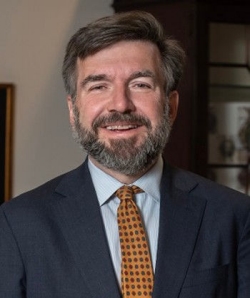
David Quigley, PhD, MA
David Quigley was named Provost and Dean of Faculties for Boston College in 2014. A distinguished historian, teacher, and scholar, Quigley demonstrated strong academic leadershipsince arriving at BC in 1998, serving as the dean of the College and Graduate School of Arts and Sciences.
He was credited with recruiting an outstanding cohort of young faculty, enhancing academic opportunities for undergraduate students, and developing new interdisciplinary majors in environmental studies and Islamic civilization and societies.
Quigley also played a significant role in the conceptualization and design of Stokes Hall, the center of the humanities at Boston College, and in the ongoing effort to renew the undergraduate core curriculum. Colleagues praised his interdisciplinary and cross-school collaboration for initiatives such as Teachers for a New Era with the Lynch School of Education and Human Development and the Portico program in the Wallace E. Carroll School of Management.
A graduate of Amherst College with an M.A. and Ph.D. from New York University, Quigley’s research and writing on 19th-century American history have earned him several prestigious academic fellowships, and he was recognized by Boston College with the University-wide Distinguished Teaching Award in 2007.
His research to date has explored the history of race and democracy between the American Revolution and Reconstruction in the local political cultures of New York.
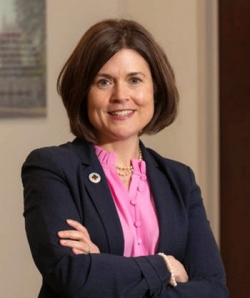
Katherine E. Gregory, PhD, RN, FAAN
Katherine E. Gregory was named dean at the William F. Connell School of Nursing on July 1, 2021. Dr. Gregory was previously the associate chief nursing officer, women’s and newborn health, research, and innovation at Brigham and Women’s Hospital and assistant professor of pediatrics at Harvard Medical School.
As a researcher, Gregory has worked with a diverse set of scientists across multiple disciplines from a wide range of institutions, and has secured both National Institutes of Health and National Institute of Nursing Research funding from 2003 through 2024. In 2009, through the generosity of University Trustee Kathleen Haley and her husband Stephen, Gregory helped establish the Haley Nurse Scientist Program, a partnership between the Connell School of Nursing (CSON) and Brigham and Women’s (BWH) that funded clinical nurses at BWH and nursing faculty at CSON to engage in scholarly activities and lead clinical research while strengthening holistic care provided to patients and families. She was selected as the inaugural Haley Nurse Scientist.
More recently, Gregory served as scientific founder of an early-stage company that aims to improve preterm infant nutrition and growth outcomes through software designed to optimize nursing care and clinical workflows, resulting in a patent issued in 2020. She has helped to raise more than $5 million in funding for the venture, while gaining invaluable experience in nurse-led innovation and entrepreneurship.
Prior to being named the associate chief nursing officer at Brigham and Women’s, Gregory served as associate director of research in pediatric newborn medicine, and director of newborn care redesign. She continues to serve as a senior scientist in pediatric newborn medicine at BWH. She is also the editor of the Journal of Perinatal and Neonatal Nursing.
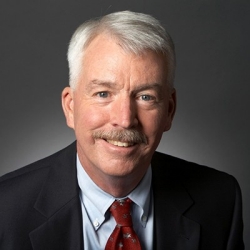
Philip J. Landrigan, MD, MSc, FAAP
At Boston College, Philip J. Landrigan is Director of the Global Public Health and the Common Good program and director of the Global Observatory on Planetary Health. He is a pediatrician, public health physician, and epidemiologist. Author of over 700 scientific publications and 10 books, in his research he uses the tools of epidemiology to elucidate connections between toxic chemicals and human health, especially the health of infants and children. He is particularly interested in understanding how toxic chemicals injure the developing brains and nervous systems of children and in translating this knowledge into public policy to protect health.
In New York City, he worked for many years in the Icahn School of Medicine at Mount Sinai and he was involved in the medical and epidemiologic follow-up of 20,000 9/11 rescue workers. From 2015 to 2017, he co-chaired the Lancet Commission on Pollution and Health. He is also member of the National Institute of Medicine.
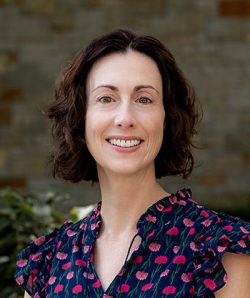
Summer Sherburne Hawkins, Ph.D., MS
Summer Sherburne Hawkins joined the Boston College School of Social Work (BCSSW) faculty in 2012. She is a social epidemiologist with an interest in addressing policy-relevant research questions in women’s and children’s health. Her research examines the impact of policies on health disparities in parents and children, particularly using methodology that integrates epidemiology and economics. She uses applied econometric techniques to evaluate natural experiments created through policy changes within and between U.S. states, including substance use policies, reproductive health-related policies, breastfeeding policies, and the Patient Protection and Affordable Care Act.
Hawkins has published in prominent peer-reviewed public health journals on the topics of tobacco and cannabis use, maternal morbidity and mortality, infant feeding practices, and preventive health services, as well as the impact of state policies on disparities in these health behaviors and outcomes.
At Boston College, Hawkins is the Assistant Director of the Institute of Early Childhood Policy and Associate Director of the Program for Global Public Health and the Common Good. She is also on the editorial boards for BMC Public Health and Maternal and Child Nutrition.
Prior to joining BCSSW, Hawkins was a Cohort 7 Robert Wood Johnson Health and Society Scholar at the Harvard T.H. Chan School of Public Health from 2009 to 2011.

Karen Bullock, PhD, LICSW, FGSA, APHSW-C
Karen Bullock is the Louise McMahon Ahearn Endowed Professor in the Boston College School of Social Work and in the program Global Public Health and the Common Good. She is a Licensed Independent Clinical Social Work (LICSW) with mental health practice experience and expertise in health disparities, health equity, serious illness care, aging and gerontology, hospice, palliative and end-of-life care decision making. She has served as Principal Investigator and/or Co-Investigator for over $5 million in federal grant funding focused on equity and inclusion for workforce development, aging, and health network sustainability.
Dr. Bullock is a John A. Hartford Faculty Scholar and has served on several national boards and committees, including the Social Work Hospice and Palliative Care Network (SWHPN) as vice-chair and the American Cancer Society (ACS) Oncology Social Work Research Peer Review Committee, past chair. She is a member of the National Academies of Sciences, Engineering, and Medicine (NASEM) Roundtable on Quality Care for People with Serious Illness, a board member of the Palliative Care Quality Collaborative (PCQ), Steering Committee member for the Duke University REACH Equity Center, affiliate faculty at the Center to Advance Palliative Care (CAPC), and has an appointment in the Department of Psychosocial Oncology and Palliative Care at Dana Farber Cancer Institute (DFCI).
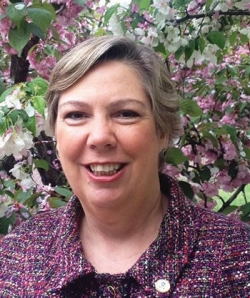
Judith Enck
Judith Enck is President of Beyond Plastics, which she founded in 2019 to end plastic pollution through education, advocacy, and institutional change. Passionate about protecting public health and the environment, she is also Professor at Bennington College.
Enck grew up in a working-class family in the Catskill Mountains and put herself through college. Since then, she has held top influential positions in state and federal government. Appointed by President Obama, she served as the Regional Administrator of the Environmental Protection Agency, overseeing environmental protection in NY, NJ, eight Indian Nations, Puerto Rico and the US Virgin Islands–in addition to managing a staff of 800 and a $700M budget.
Previously, Enck served as Deputy Secretary for the Environment in the New York Governor’s Office, and Policy Advisor to the New York State Attorney General. She was Senior Environmental Associate with the New York Public Interest Research Group, served as Executive Director for Environmental Advocates of New York and is a past President of Hudson River Sloop Clearwater. Enck is also a panelist on a public affairs radio show on a local NPR station, WAMC, in Albany, NY.
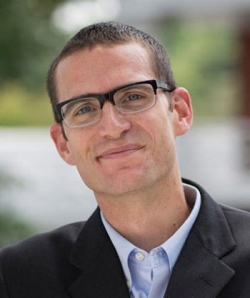
Willis Jenkins, Ph.D.
Willis Jenkins lives in the Rivanna River watershed (Monacan land), where he works as Hollingsworth Professor of Ethics and Chair of the Department of Religious Studies at the University of Virginia.
He is author of two award-winning books: Ecologies of Grace: Environmental Ethics and Christian Theology, which won a Templeton Award for Theological Promise, and The Future of Ethics: Sustainability, Social Justice, and Religious Creativity, which won an American Academy of Religion Award for Excellence. He is co-editor of several books, including the Routledge Handbook of Religion and Ecology, and many essays along intersections of religion, ethics, and environmental humanities. Jenkins co-directs the Coastal Futures Conservatory, which integrates arts and humanities into coastal change research at the National Science Foundation’s Virginia Coast Reserve Long-Term Ecological Research site.
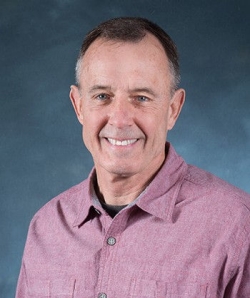
Thomas C. Chiles, PhD, BS
Thomas C. Chiles is DeLuca Professor in Biology and Vice Provost for Research and Academic Planning at Boston College. He received his B.S. in Microbiology and Cell Science from the University of Florida, and his Ph.D. in Biochemistry and Molecular Biology from the University of Florida College of Medicine. He was also a post-doctoral fellow at Boston University School of Medicine in the Immunology/Oncology Training Program, as a Ruth L. Kirschstein NRSA fellow.
At Boston College, he served as Chair of the Biology Department. He also served on several National Institutes of Health study sections, including Hypersensitivity, Autoimmune and Immune-mediated Diseases and on the Cancer Biology special emphasis panel at the National Cancer Institute.
He was member of numerous editorial boards, including as Section Editor for the Journal of Immunology, as well as of the American Association of Immunologists and American Society of Hematologists. He is currently serving on the editorial board of Frontiers in Immunology and served on the Lancet Commission on Pollution, Health and Development in partnership with the Global Alliance on Health and Pollution, and the Icahn School of Medicine at Mount Sinai in New York.
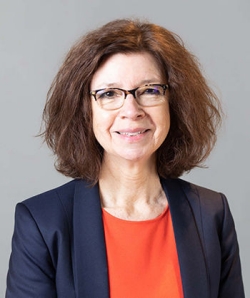
Sarah Dunlop, PhD, BSc
Emeritus Professor Sarah Dunlop joined Minderoo Foundation in 2020 to set up and lead the Plastics and Human Health Impact Mission to establish a causal link between plastics and negative human health impacts and a pathway to safe and sustainable alternative materials by 2030.
In collaboration with world-leading research partners, the Minderoo Foundation synthesizes evidence from published scientific literature with outputs including the Minderoo-Monaco Commission on Plastics and Human Health, the Plastic Health Map and an Umbrella Review evaluating impacts on human health from major classes of plastic-associated chemicals. Moreover, the Minderoo Foundation also accelerates discovery where critical evidence is lacking by supporting randomized controlled clinical trials (e.g., Plastics Exposure Reduction Transforms Health, PERTH) and hybrid epidemiological studies as well as delivering accurate measurement techniques for nanoplastics and plastic-associated chemicals in humans.
Dunlop’s prior medical research career focused on brain development and recovery following chemical and physical injury to the brain, spinal cord and peripheral nervous system, including randomized controlled trials. Her senior roles included: Accorded Status, Royal Perth Hospital; Director, Spinal Cord Injury Network; President, Australian Neuroscience Society; Head, School of Biological Sciences, University of Western Australia.
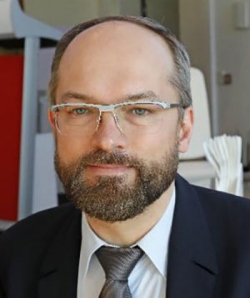
Hervé Raps, MD
Hervé Raps is the Research Delegate Physician at the Monaco Scientific Center, where he leads the Clinical Research support activity and the “Ocean and Human Health” theme. He is conducting awareness-raising and capacity-building activities on environmental health issues, particularly those related to the oceans, for a range of stakeholders. He has been on the steering committee and among the authors of the Monaco Commission on Ocean Pollution and Human Health and the Minderoo-Monaco Commission on Plastics and Human Health. He is a member of the Steering Committee of the “Espace Ethique PACA Corse” and the Scientific Council of Académie 3 at the Université Côte d’Azur in France.
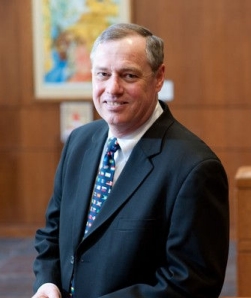
David A. Wirth, JD
David A. Wirth is a professor and Dean’s Distinguished Scholar at Boston College Law School, where he has served as Director of International Programs. He teaches primarily in the field of public international law. He has a particularly strong research interest in international environmental law, an area in which he has worked and practiced for more than two decades. In addition to Boston College, he has taught at Harvard, M.I.T., Oxford, Tuft’s Fletcher School of Law and Diplomacy, and the University of Virginia.
Prior to moving to academia, Wirth was Senior Attorney and Co-Director of the International Program at the Washington, D.C. office of the Natural Resources Defense Council (NRDC), a nonprofit public interest law firm specializing in environmental issues. While there, he worked on a variety of international environmental issues, including environmental reform of World Bank and regional development banks, the “greenhouse” effect, Soviet and eastern European environmental issues, stratospheric ozone depletion, and exports of hazardous substances.
Wirth has also been Attorney-Adviser for Oceans and International Environmental and Scientific Affairs in the Office of the Legal Adviser of the U.S. Department of State in Washington, D.C., where he had principal responsibility for all international environmental issues, including exports of hazardous substances and technologies, acid rain, and stratospheric ozone depletion. In his positions at the Department of State and NRDC, Wirth had extensive experience in multilateral negotiations under the auspices of the United Nations Environment Program, the Organization for Economic Cooperation and Development, the UN Economic Commission for Europe, and other international organizations.
A life member of the Council on Foreign Relations, Wirth has served on advisory boards to several institutions of higher learning, domestic agencies, and international organizations, including Vermont Law School, the Environmental Protection Agency, and the European Bank for Reconstruction and Development. He has been a consultant to the United Nations Development Program, United Nations Environment Program, North American Commission for Environmental Cooperation, C.S. Mott Foundation, German Marshall Fund of the United States, and Belgian State Secretary for Energy and Sustainable Development.
A prolific writer, Wirth is the author of more than fifty articles and reports on international environmental law and policy for legal, academic, professional, and popular audiences. He is co-author of major new editions of legal texts on international organizations and environmental law. Wirth is currently at work on a scholarly treatise on the role of science in international trade law. His published work has appeared in numerous highly respected journals, including the Yale Law Journal, Columbia Law Review, Virginia Law Review, Foreign Policy, and American Journal of International Law.
Wirth is a 1981 graduate of the Yale Law School and served as law clerk to Judge William H. Timbers of U.S. Court of Appeals for the Second Circuit in New York for a year thereafter. He holds undergraduate and graduate degrees in chemistry from, respectively, Princeton University and Harvard University, at which he held a National Science Foundation Fellowship. During the summer of 1997, he was a Fulbright Scholar through the Organization for Security and Cooperation in Europe (OSCE) Regional Research Program.
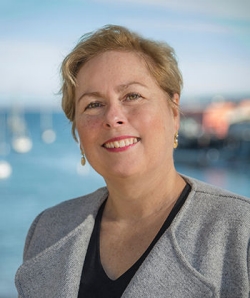
Margaret Spring, JD
Margaret Spring, the Chief Conservation and Science Officer for the Monterey Bay Aquarium, oversees the aquarium’s many conservation and science programs that advance healthy oceans through policy, markets, and research. These programs span the Aquarium’s global initiatives to advance sustainable fisheries and aquaculture, including the Seafood Watch program, its work to advance U.S. and California ocean conservation priorities, as well as its related research, including collaborations with the Aquarium’s research and technology partner, the Monterey Bay Aquarium Research Institute (MBARI).
Prior to joining the Aquarium, she held leadership roles at the National Oceanic and Atmospheric Administration (NOAA), first as chief of staff and then as principal deputy undersecretary for oceans and atmosphere, and she led The Nature Conservancy's California coastal and marine program. From 1999 to 2007, she served on Capitol Hill as senior counsel, then general counsel to the Senate Committee on Commerce, Science, and Transportation.
Spring serves on the board of the California Ocean Science Trust, a nonprofit organization tasked with providing rigorous science to guide decisions about the future of California’s coast and ocean. She also serves on the board of the Environmental Law Institute and is a founding board member of the Monterey Bay Fisheries Trust. Previously she served on the Ocean Studies Board of the National Research Council. From 1992 to 1999, she was an environmental attorney at Sidley and Austin in Washington, D.C. She is a graduate of Duke University Law School and Dartmouth College.
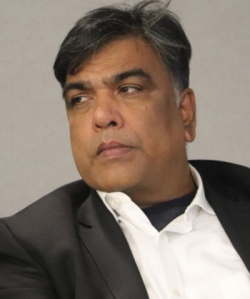
Pushpam Kumar, PhD
Pusphpam Kumar is Senior Economic Advisor for the U.N. Environment Program (UNEP), where he leads various initiatives: Inclusive Wealth, Planetary Crisis and Human Development, Financing of Sustainable Development Goals, Nature Based Solutions, Restoration Finance, Human and Planetary Health, among others. In the past he has worked as the Chief of the Ecosystem Services Economics Unit, and as Coordinator of the Biodiversity and Ecosystem Services Branch in the Ecosystems Division. He has been instrumental in designing, implementing and providing leadership to the operationalization of the concept of Natural Capital through flagship projects like VANTAGE (Valuation and Accounting of Natural Capital for Green Economy) and Proecoserv, culminating in a resolution on Natural Capital passed during UNEA2 in 2016.
Pushpam has served as a member of the Expert Panel of the National Ecosystem Assessment (NEA). He is also Advisory Board member of the Gulbenkia Ocean Initiative (Lisbon). He was closely associated with the 2007 Nobel peace prize winning of the Intergovernmental Panel on Climate Change (IPCC) where he served as the Lead Author for the Fourth Assessment of the IPCC (Mitigation). He was co-coordinating lead author of the Responses Working Group of the Millennium Ecosystem Assessment. He also co-chaired the Policy and Technical Committee of the Wealth Accounting and Valuation of Ecosystem Services (WAVES) Programme led by the World Bank.
Pushpam has a Ph.D. in Environmental Economics and, in the years 1991-2010, he has been at the University of Liverpool and University of Delhi as Associate Professor and Professor in Environmental Economics. He also holds the Position of Honorary Research Scientist at the Earth Institute of Columbia University in New York and is an Extra-Ordinary Professor at the University of Pretoria. He has published in peer-reviewed journals such as Science, Bioscience, Ecological Economics, Ambio, Ecosystem Services, and Journal of International Development. He has authored or edited more than eight books. He has been elected Member of the Board of International Society for Ecological Economics, Indian Society for Ecological Economics, and European Society for Ecological Economics. He is also on the editorial board of various journals including Ecological Economics.
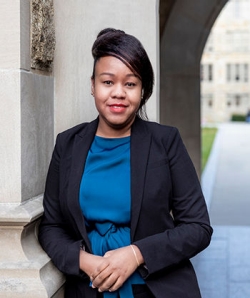
Nelly Wamaitha, PhD, LLM, LLB
Nelly Wamaitha is Assistant Professor of Theology and International Studies at Boston College. Her areas of research and interest are ethics, human rights, economic justice and international development, law and society, postcolonial theology, and critical theory.
Prior to her academic career Nelly worked as a lawyer in Nairobi, Kenya, and in London. Before undertaking doctoral studies at Emory University, Nelly studied law at Duke University and the University of Nairobi and theological studies at the University of Oxford.
Her current project is a telling of a decolonial history of the law in Kenya, by focusing on the role that the law and the Constitution played in creating inequalities in economic and political power between Kenya and its colonizers. Her work is an attempt to understand how colonial logics have been transmitted across time and by so doing learn how colonial logics sustain themselves to produce new forms of colonialism today. Hence, she articualtes theologies of history and of law that have the power to resist colonial power structures.
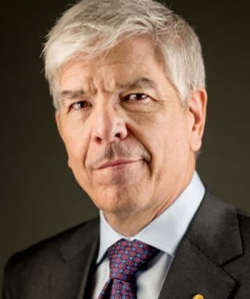
Paul M. Romer, PhD
Paul Romer – the Seidner University Professor and founding director of the Center for the Economics of Ideas at the Carroll School of Management – is one of the most influential economists of the 21st century. In four decades as a professional economist, he has addressed a range of abstract and practical questions, typically by re-examining an existing concern from a novel perspective.
In 2018 he was awarded the Nobel Prize in Economics. His Nobel lecture elaborates on the implications of ideas for “The Possibility of Progress.” Owing to his interest in not just the abstract process of innovation but also the practical details, in 2001 Romer started an educational technology company, Aplia, which showed how online exercises could reinforce classroom education. He sold the company to Cengage Learning in 2007.
In 1993, he co-authored (with George Akerlof) a paper that used the savings and loan crisis of the 1980s to highlight the harm that careless financial deregulation could cause. The paper met with considerable skepticism at the time, but since the financial crisis of 2007-2008, its message has become part of the “accepted wisdom.” The paper is also seen as one of the founding contributions to the area known as Forensic Finance.
After 2007, Romer focused on successful urbanization as a key driver of rapid catch-up growth for poor countries. The importance of this process is particularly clear in China’s rapid growth during the 1990s. On the basis of the successful urban centers of Hong Kong and Shenzhen, he encouraged policy makers to consider the possibility of starting entirely new “Charter Cities.” He became the founding director of New York University’s Marron Institute for Urban Management and subsequently chief economist at the World Bank. His approach to urban design and form is reflected in his exploration of Black Rock City, which comes into existence each year with a population of 70,000 at the Burning Man Festival in Nevada.
Recently, Romer has revisited the policy challenges created by the novel characteristics of ideas as economic goods. He has also emphasized the problems created by web business models based on targeted digital advertising, and the threat posed by digital messages of unknown provenance. The Center for the Economics of Ideas that he launched at Boston College offers practical solutions that address the need for “Digital Authenticity,” by helping authors and publishers to certify to any reader the integrity of the files they distribute.
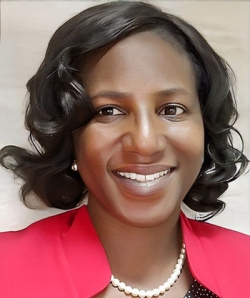
Adetoun Mustapha, PhD, MPH, ISEEF
Adetoun Mustapha is a leading Environmental Epidemiologist in Africa. Her research is focused on air pollution, social determinants of health, plastic pollution, climate change and ethics. Her 30-year career spans industry, academia, and research. She is an adjunct Associate Professor of Environmental Epidemiology at the Lead City University, Nigeria and an adjunct Researcher at the Nigerian Institute of Medical Research (NIMR).
She has been the Principal and Co-Principal Investigator in various impactful projects including the Population-Based Interventions towards Reducing the burden of Hypertension in Nigeria (PoBIRH), the Lagos Air Quality Monitoring Program, and the Nigerian Environmental Epidemiology Accelerated Research (NEEAR) Program.
She has been an expert reviewer and member of various international groups such as the Lancet Commission on Pollution and Health, the Minderoo-Monaco Commission on Plastics and Human Health, and the World Health Organization Personal Interventions and Risk Communication on Air Pollution. She is a Fellow of the Collegium Ramazzini, Fellow of the International Society for Environmental Epidemiology (ISEE), the inaugural chair of International Society for Environmental Epidemiology (ISEE) Africa chapter and past Councilor for Africa in the ISEE Council. She is a recipient of several national and international awards including the ISEE Rebecca James Baker Memorial Prize.
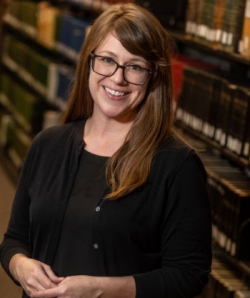
Christina McRorie, PhD
At Boston College, Christina McRorie is associate professor of moral theology at the Gloria L. and Charles I. Clough School of Theology and Ministry. Her research is interdisciplinary, and draws from the Christian tradition, political economy, and economics to consider questions about moral agency and obligation in markets. She currently serves on the board of directors of the Society of Christian Ethics, and on the editorial boards of the Journal of Moral Theology and the Journal of Catholic Social Thought. From 2020 to 2023 she was a Research Fellow in the Collaborative Inquiries in Christian Theological Anthropology project funded through the John Templeton Foundation.
She received her doctorate from the University of Virginia in 2016, and before joining Boston College she taught at Creighton University for seven years. She also has experience leading low-income financial empowerment programming, including two years coordinating volunteer tax preparation sites with the Boston Earned Income Tax Credit (EITC) Coalition. She is currently at work on a monograph project that uses the theological category of “the world” to examine markets as contexts for moral agency.
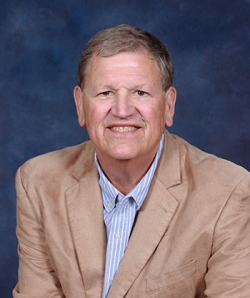
Rev. Mitchell C. Hescox, MDiv
The Rev. Mitchell C. Hescox serves as a climate and energy policy consultant and is the President Emeritus of the Evangelical Environmental Network (EEN), where he led the EEN team for fifteen (15) years.
He co-authored Caring for Creation: The Evangelical Guide to Climate Change and a Healthy Environment with nationally known meteorologist Paul Douglas. He also contributed to: Sacred Acts: How Churches Are Working Together to Protect Earth’s Climate; Health of People, Health of Planet, Our Responsibility; and Loving the Least of These. He has testified before Congress, spoken at the White House, and presented at the Vatican and the Council for Foreign Relations. He has appeared on CNN, NPR, PRI, MSNBC, BBC, and numerous radio programs, both Christian and secular.
Rev. Hescox and EEN have been widely recognized for their advocacy for the Mercury and Air Toxics Standard (MATS), Land Water Conservation Fund (LWCF), Growing Climate Solutions Act, Infrastructure Investment and Jobs Act, the Inflation Reduction Act, and Methane Leakage Reduction Standards, among others.
He is a member of the National Association of Evangelicals, a past member of the National Association of Evangelicals (NAE) Board of Directors, a past member of Environmental Protection Agency (EPA) Clean Air Act Advisory Committee, the Pennsylvania Department of Environmental Protection’s Citizen Advisory Council, and a member of the American Academy of Arts and Sciences’ Commission on Accelerating Climate Action.
Before joining EEN, he pastored a local church for 18 years, and before the call to ordained ministry served the coal and utility industry as Director, Fuel Systems for Allis Mineral Systems (York, PA).
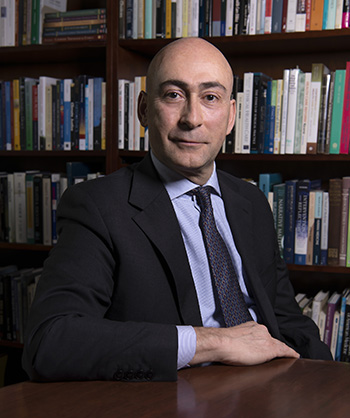
Andrea Vicini, SJ, MD, PhD, STD
At Boston College, Andrea Vicini, S.J. is the Chair of the Theology Department and Michael P. Walsh Professor of Bioethics, and an affiliate member of the Gloria L. and Charles I. Clough School of Theology and Ministry. M.D. and pediatrician (University of Bologna), he is an alumnus of Boston College (S.T.L. and Ph.D.) and holds an S.T.D. from the Pontifical Faculty of Theology of Southern Italy (Naples). He held the Boston College Gasson Chair and taught in Italy, Albania, Mexico, Chad, and France. He is co-chair of the international network Catholic Theological Ethics in the World Church. His research and publications include theological bioethics, sustainability, global public health, new biotechnologies, and fundamental theological ethics. During the academic year 2015-2016, he had a research fellowship at the Center of Theological Inquiry in Princeton, NJ, on the Societal Implications of Astrobiology. Since 2021 he is a Fellow of the Collegium Ramazzini.
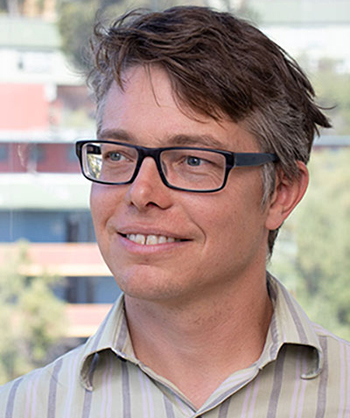
Marty Mulvihill, PhD
Marty Mulvihill is the co-founder and a managing partner in Safer Made, a mission-driven venture capital fund investing in companies and technologies that reduce human exposure to harmful chemicals. Safer Made invests in teams that bring safer products and technologies to market, tell a unique story, have the potential to change their sectors, and protect human health and the natural world. His experience as a chemist showed him that safer product solutions already exist and need attention and capital to get to market.
Mulvihill is also an advisor at the Berkeley Center for Green Chemistry, where he served as the initial Executive Director. He has contributed to the development of technologies that provide access to clean drinking water and the creation of safer chemicals and materials based on biological feedstocks. He has created safer chemicals and materials for personal care, construction, electronics, and textile industries. He received his Ph.D. in Chemistry in 2009 from the University of California, Berkeley.

James F. Keenan, SJ, STD
At Boston College, James Keenan, S.J. is Vice Provost for Global Engagement, Canisius Professor in the Theology Department, and Director of the Jesuit Institute, and held the Gasson Chair and then the Founders Professorship in Theology. He earned his doctorate from the Gregorian University in Rome and taught at Fordham University and at the Weston Jesuit School of Theology. He was Visiting Professor at Dharmaram Vidya Kshetram (Bangalore), the Pontifical Gregorian University (Rome), and Ateneo de Manila University.
He authored and edited over a dozen of books, hundreds of articles and book chapters, and founded and directed the Moral Traditions Series of volumes in theological ethics published by Georgetown University Press.
Globally, he was the founder and co-chair of the network Catholic Theological Ethics in the World Church and contributed to organize regional and global conferences and two book series. Member of numerous boards, he was also consultor of the National Catholic Conference of Bishops for the Revision of the Ethical Guidelines for Catholic Health Care Institutions, the New York State Transplant Council, and was Group Leader of the Surgeon General’s Task Force on Responsible Sexual Conduct.
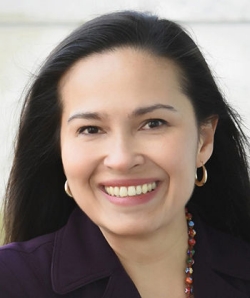
Odette Lienau, JD, PhD
Odette Lienau joined Boston College Law School in January 2023 as the inaugural Marianne D. Short, Esq., Dean. She previously served as a professor of law and former associate dean for faculty research and intellectual life at Cornell University Law School. Her research and teaching interests center around international economic law, international law and international relations, and political and legal theory.
Dean Lienau’s first book, Rethinking Sovereign Debt: Politics, Reputation, and Legitimacy in Modern Finance, won an American Society of International Law Book Award. Her research and related articles have appeared in many distinguished publications, including the Harvard International Law Journal, Yale Journal of International Law, and Oxford University Press, among others. She has served as a consultant and expert for the United Nations Conference on Trade & Development (UNCTAD), the International Monetary Fund, and the World Bank, among other organizations, and is a life member of the Council on Foreign Relations.
As associate dean at Cornell, Dean Lienau focused on raising the scholarly profile of the faculty, launching new research workshops and an annual report highlighting faculty scholarly activity, among other initiatives. As chair of the Academic Programs & Planning Committee (2020-2021), she spearheaded development of a new concentration in Law, Inequity, and Structural Exclusion. As chair of the Upper-Level Curriculum & Transition Committee during the COVID-19 pandemic, she facilitated effective hybrid and remote learning. Dean Lienau also worked closely with school leadership on rankings and reputation initiatives, remote work policies and procedures, academic certification, global exchanges, and developing online programming.
Dean Lienau practiced with the Financial Restructuring and Insolvency group at Shearman & Sterling in New York City prior to joining Cornell Law School and has taught at Harvard and Yale Law Schools.
She received her A.B. from Harvard College and J.D. from NYU School of Law. She earned a Ph.D. in political science at Harvard University, where her dissertation received the University’s Charles Sumner Prize.
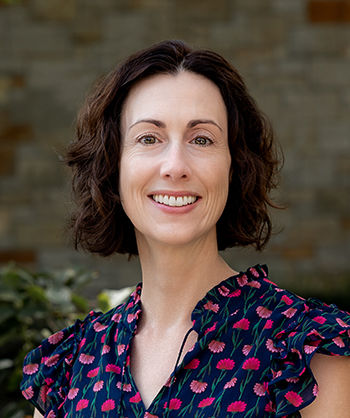
Summer Sherburne Hawkins
Summer Sherburne Hawkins joined the Boston College School of Social Work (BCSSW) faculty in 2012. She is a social epidemiologist with an interest in addressing policy-relevant research questions in women’s and children’s health. Her research examines the impact of policies on health disparities in parents and children, particularly using methodology that integrates epidemiology and economics. She uses applied econometric techniques to evaluate natural experiments created through policy changes within and between U.S. states, including substance use policies, reproductive health-related policies, breastfeeding policies, and the Patient Protection and Affordable Care Act.
Hawkins has published in prominent peer-reviewed public health journals on the topics of tobacco and cannabis use, maternal morbidity and mortality, infant feeding practices, and preventive health services, as well as the impact of state policies on disparities in these health behaviors and outcomes.
At Boston College, Hawkins is the Assistant Director of the Institute of Early Childhood Policy and Associate Director of the Program for Global Public Health and the Common Good. She is also on the editorial boards for BMC Public Health and Maternal and Child Nutrition.
Prior to joining BCSSW, Hawkins was a Cohort 7 Robert Wood Johnson Health and Society Scholar at the Harvard T.H. Chan School of Public Health from 2009 to 2011.
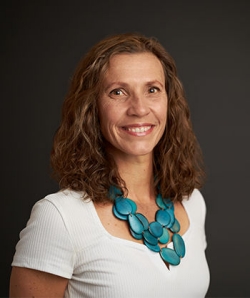
Tara Pisani Gareau, PhD
Tara Pisani Gareau is the Director of the Environmental Studies Program at Boston College. Her research applies ecological principles to restore ecological function and resiliency to agricultural landscapes, while minimizing environmental externalities and focusing on how farming systems can be more sustainable in light of climate change. Her interests include conservation biological control, arthropod community diversity, wild bee pollination services, and interactions between climate and agriculture.
Her research projects include examining the effect of native plant hedgerows on biological control services in California, investigating the effects of tillage and cover crops on epigeal arthropod communities in Pennsylvania forage and feed systems, studying dragonflies and damselflies for their potential to regulate pest populations in the cranberry bog system, and assessing the impact of climate change on the sustainability of cranberry bogs in Massachusetts.
She holds a Ph.D. and M.A. in Environmental Studies from the University of California, Santa Cruz.
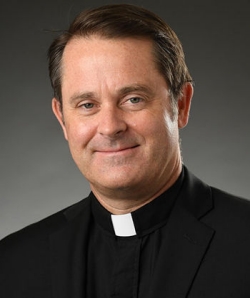
Rev. Michael C. McCarthy, SJ, PhD
Michael C. McCarthy, S.J., a native of San Francisco, CA, entered the Society of Jesus in 1983 after a year as an undergraduate at Stanford University. He completed his Bachelor of Arts in Classical Languages from Santa Clara University in 1987 before spending four years at Oxford University, where he earned an M.A. (Oxon.) in Literae Humaniores (“Greats”) in 1991. After finishing an M.Div. at the Jesuit School of Theology at Berkeley in 1997, he received his Ph.D. in Christianity and Judaism in Antiquity, with an emphasis in Patristic Theology, from the University of Notre Dame in 2003.
Beginning in 2003 he served on the faculty of Santa Clara University, with a joint appointment in the religious studies and classics departments, where he also held the Edmund Campion University Professorship. In 2011 he became the Executive Director of the Ignatian Center for Jesuit Education at Santa Clara. In 2016 he moved to New York to take up the position of Vice President for Mission Integration and Planning at Fordham University, where he held a faculty appointment in the Theology Department. In June 2022 he was appointed as Dean of the Boston College Gloria L. and Charles I. School of Theology and Ministry.
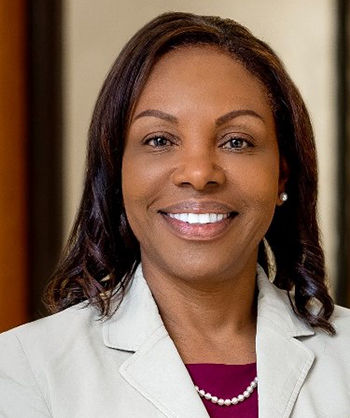
Karen Bullock, PhD, LICSW, FGSA, APHSW-C
Karen Bullock is the Louise McMahon Ahearn Endowed Professor in the Boston College School of Social Work and in the program Global Public Health and the Common Good. She is a Licensed Independent Clinical Social Work (LICSW) with mental health practice experience and expertise in health disparities, health equity, serious illness care, aging and gerontology, hospice, palliative and end-of-life care decision making. She has served as Principal Investigator and/or Co-Investigator for over $5 million in federal grant funding focused on equity and inclusion for workforce development, aging, and health network sustainability.
Dr. Bullock is a John A. Hartford Faculty Scholar and has served on several national boards and committees, including the Social Work Hospice and Palliative Care Network (SWHPN) as vice-chair and the American Cancer Society (ACS) Oncology Social Work Research Peer Review Committee, past chair. She is a member of the National Academies of Sciences, Engineering, and Medicine (NASEM) Roundtable on Quality Care for People with Serious Illness, a board member of the Palliative Care Quality Collaborative (PCQ), Steering Committee member for the Duke University REACH Equity Center, affiliate faculty at the Center to Advance Palliative Care (CAPC), and has an appointment in the Department of Psychosocial Oncology and Palliative Care at Dana Farber Cancer Institute (DFCI).
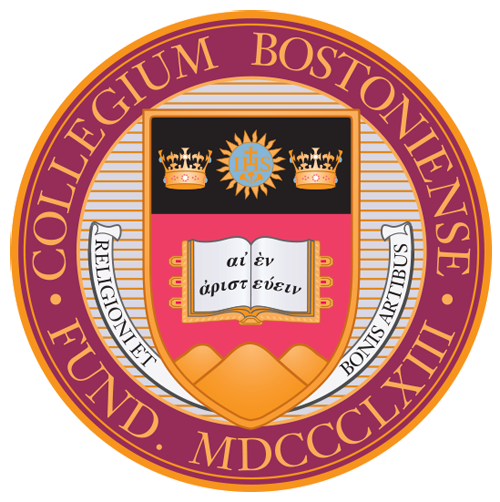
This Call for Posters invites undergraduate and graduate students at Boston College to submit aPoster for the conference on “Joining Science and Theology to End Plastic Pollution, Protect Health, and Advance Social Justice” to be held at Boston College on Saturday, October 5, 2024 in the Heights Room, Corcoran Commons. This conference will be hosted jointly by the programin Global Public Health and the Common Good in the William F. Connell School of Nursing and the Theology Department, in collaboration with the Gloria L. and Charles I. Clough School of Theology and Ministry, the School of Social Work, and the Law School.
Plastics are manufactured chemical materials produced principally from fossil carbon–gas, oil, and coal. Plastics have supported extraordinary advances in virtually every area of human endeavor, and they have made our lives immeasurably more convenient. However, plastics are neither as safe nor as inexpensive as they seem. Plastics’ benefits come at great and increasingly visible costs to human health, the environment, and social justice.
The conference will bring together a distinguished group of scholars–from Boston College, across the United States, and internationally–in ethics, law, public policy, economics, and environmental studies to examine some of the major ethical challenges related to plasticpollution on our planet in the 21st century.
The Posters should present research or findings or reflections or artistic productions related to plastic pollution, preferably in a global health perspective (e.g., by elucidating some of the social, political, economic and environmental factors that influence patterns of plastic production, and the consequences for health and the planet). Up to 30 posters will be selected. The selected posters will be displayed in the Boston Room and Newton Room adjacent to the Heights Room in Corcoran Commons where the conference will be held. To present the posters, two poster sessions are scheduled: during lunch (11:45 AM-12:45 PM) and during the finalreception (5:45-6:30 PM).
Requirements for poster submission:
- Prepare the poster as a PDF.
- High resolution.
- PDF size should be close to 36" x 48".
- The deadline to submit the pdf of the poster is Monday, September 16, 2024 at 12:00 noon.
- Please send the pdf of your poster both to Phillip J. Landrigan (phil.landrigan@bc.edu), and Andrea Vicini, SJ (andrea.vicini@bc.edu).
- Actual printing of posters will be done off site; late submissions will not be accepted. The students who submitted the pdf of their posters will be notified of their acceptance or not by email on Friday, September 20, 2024, before 12:00 midnight.
- Accepted poster: The students are invited to record and submit to Andrea Vicini, SJ a short video presentation of their poster (1'-2' max). The students’ video presentationswill be posted on the conference website.
- The accepted posters will be printed on foam board 36" x 48" and mounted on easels.
Thanks to the generosity of our benefactors, the organizing committee will pay for the printing of the accepted posters.

Karen Bullock, PhD, LICSW, FGSA, APHSW-C
Karen Bullock is the Louise McMahon Ahearn Endowed Professor in the Boston College Schoolof Social Work and in the program Global Public Health and the Common Good. She is a Licensed Independent Clinical Social Work (LICSW) with mental health practice experience andexpertise in health disparities, health equity, serious illness care, aging and gerontology, hospice, palliative and end-of-life care decision making. She has served as Principal Investigator and/or Co-Investigator for over $5 million in federal grant funding focused on equity and inclusion for workforce development, aging, and health network sustainability.
Dr. Bullock is a John A. Hartford Faculty Scholar and has served on several national boards and committees, including the Social Work Hospice and Palliative Care Network (SWHPN) as vice-chair and the American Cancer Society (ACS) Oncology Social Work Research Peer Review Committee, past chair. She is a member of the National Academies of Sciences, Engineering,and Medicine (NASEM) Roundtable on Quality Care for People with Serious Illness, a boardmember of the Palliative Care Quality Collaborative (PCQ), Steering Committee member for the Duke University REACH Equity Center, affiliate faculty at the Center to Advance Palliative Care (CAPC), and has an appointment in the Department of Psychosocial Oncology and Palliative Care at Dana Farber Cancer Institute (DFCI).

Summer Sherburne Hawkins, PhD, MS
Summer Sherburne Hawkins joined the Boston College School of Social Work (BCSSW) faculty in 2012. She is a social epidemiologist with an interest in addressing policy-relevant research questions in women’s and children’s health. Her research examines the impact of policies on health disparities in parents and children, particularly using methodology that integrates epidemiology and economics. She uses applied econometric techniques to evaluate natural experiments created through policy changes within and between U.S. states, including substance use policies, reproductive health-related policies, breastfeeding policies, and the Patient Protection and Affordable Care Act.
Hawkins has published in prominent peer-reviewed public health journals on the topics of tobacco and cannabis use, maternal morbidity and mortality, infant feeding practices, and preventive health services, as well as the impact of state policies on disparities in these health behaviors and outcomes.
At Boston College, Hawkins is the Assistant Director of the Institute of Early Childhood Policy and Associate Director of the Program for Global Public Health and the Common Good. She is also on the editorial boards for BMC Public Health and Maternal and Child Nutrition.
Prior to joining BCSSW, Hawkins was a Cohort 7 Robert Wood Johnson Health and Society Scholar at the Harvard T.H. Chan School of Public Health from 2009 to 2011.
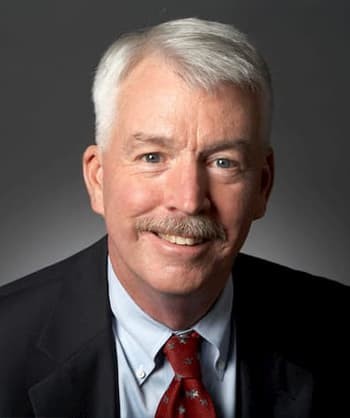
Philip J. Landrigan, PhD, MSc
Chair of the Advisory Committee at Boston College, Philip J. Landrigan is Director of the Global Public Health and the Common Good program and director of the Global Observatory on Planetary Health. He is a pediatrician, public health physician, and epidemiologist. Author of over 700 scientific publications and 10 books, in his research he uses the tools of epidemiology to elucidate connections between toxic chemicals and human health, especially the health of infants and children. He is particularly interested in understanding how toxic chemicals injure the developing brains and nervous systems of children and in translating this knowledge into public policy to protect health.
In New York City, he worked for many years in the Icahn School of Medicine at Mount Sinai andhe was involved in the medical and epidemiologic follow-up of 20,000 9/11 rescue workers. From 2015 to 2017, he co-chaired the Lancet Commission on Pollution and Health. He is also member of the National Institute of Medicine.
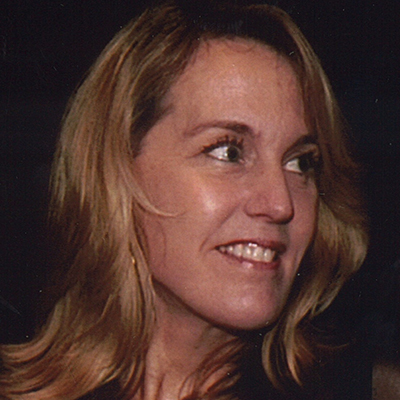
Alison Carlson, BA
For more than three decades, Alison Carlson has worked to turn cutting-edge knowledge—of biology and the environment—into clear results for the public good. She started in 1979 as avisiting biologist intern at the U.S. Food and Drug Administration. Now, as founder and chair of Forsythia Foundation, she focuses on the intersection between health and the environment.
Carlson has always been committed to the accurate translation of scientific understanding into real-world policy. During 20 years as a tennis coach, sports promoter, and sports commentator, she tackled sex discrimination as a leading advocate for reform of gender-based athlete eligibility requirements mandated by the International Olympic Committee and affiliated sports federations. As a co-founder of the International Work Group on Sex/Gender Verification Policy in Sports, she researched and wrote extensively on the topic, educated athlete and physician groups, and coordinated a lobbying effort among international sports governing bodies. These efforts contributed to the adoption of scientifically, medically, and ethically defensible standards and practices.
Carlson also co-hosted, reported for, and contributed to National Public Radio’s first all-sports program, Only A Game, “a thinking person’s look at sports and sports issues,” which she helped originate. She subsequently served as an administrator and creative resource for MBA candidates enrolled in the social entrepreneurship and public service program during a four-year tenure as assistant director at the Stanford Graduate School of Business.
In 2003, she was appointed senior fellow for Commonweal Institute’s Collaborative on Health and the Environment, where she founded and led the Fertility/Pregnancy Compromise Work Group, bringing together scientists, doctors, advocates, and policy experts concerned about the effect of contaminants on reproductive health. The group organized a landmark multidiscipline expert workshop to review the scientific literature, which resulted in the publication of the acclaimed “Vallombrosa Consensus Statement on Environmental Contaminants and Human Fertility Compromise,” a science summary identifying critical research gaps. This effort inspired the launch of the Program on Reproductive Health and the Environment at the University of California, San Francisco.
In concert with the OB/GYN department chair at UCSF, Carlson conceived and co-directed the 2007 Summit on Environmental Challenges to Reproductive Health and Fertility, convening 400 experts from around the world to define new high-priority research agendas. That same year, she co-founded Passport Foundation, where she developed and chaired grant programs supporting environmental health research, advocacy, and policy reform.
To advance these initiatives to protect health, Carlson launched Forsythia Foundation in 2010. The foundation funds leading actors who drive demand for safer materials and deploys investment capital in strategies that scale green chemistry innovation and commercialization.
Carlson is a Phi Beta Kappa graduate of Stanford University, where she holds a BA with distinction in human biology.
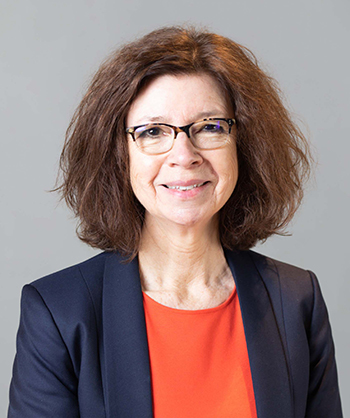
Sarah Dunlop, PhD, BSc
Emeritus Professor Sarah Dunlop joined Minderoo Foundation in 2020 to set up and lead the Plastics and Human Health Impact Mission to establish a causal link between plastics and negative human health impacts and a pathway to safe and sustainable alternative materials by 2030.
In collaboration with world-leading research partners, the Minderoo Foundation synthesizes evidence from published scientific literature with outputs including the Minderoo-Monaco Commission on Plastics and Human Health, the Plastic Health Map and an Umbrella Review evaluating impacts on human health from major classes of plastic-associated chemicals. Moreover, the Minderoo Foundation also accelerates discovery where critical evidence is lacking by supporting randomized controlled clinical trials (e.g., Plastics Exposure Reduction Transforms Health, PERTH) and hybrid epidemiological studies as well as delivering accurate measurement techniques for nanoplastics and plastic-associated chemicals in humans.
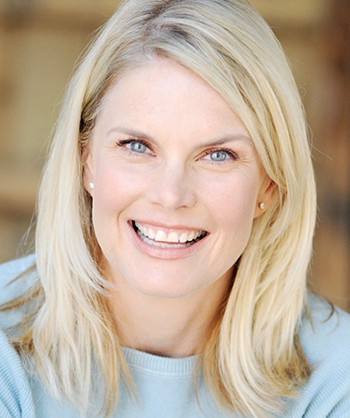
Sarah L. Stimson Karis, BA
Sarah is an experienced advisor, consultant and business developer, with a particular focus on creating collaborations between people, corporations and non-profit organizations. Earlier, she was a marketing, advertising and public relations professional in the art, fashion, film and television industries, as well as an advocate, spokesperson and brand ambassador for companies and philanthropic groups.
She was appointed an Advisor of The Henry L. Stimson Center, located in Washington, D.C., a nonpartisan think tank promoting international security, shared prosperity and justice through applied research and policy innovation. In 2020 she joined the Board of Counselors of the Stimson project ACRE (Alliance for a Climate Resilient Earth)–a global project that facilitates partnerships between business and policy leaders grappling with the challenges of building climate resilient infrastructure–and she was instrumental in establishing the partnership with the Prince Albert II of Monaco Foundation. She also serves as Chairperson of the Stimson Center Diplomatic Council on Climate Resilience (DCCR).
She is co-founder of deux4 LLC, which advises organizations in the environmental and pharmaceutical sectors. She also serves on the Board of Directors of the Northern Rio Grande National Heritage Area (NRGNHA), a tri-county (Santa Fe, Rio Arriba and Taos), nonprofit based in Española, NM, to sustain the communities, heritages, languages, cultures, traditions and environment of Northern New Mexico through partnerships, teaching and interpretation. NRGNHA is part of the Alliance of National Heritage Areas (ANHA). In addition, she is on the Advisory Board of Unicube, an international sustainable furniture company headquartered in San Diego, CA.
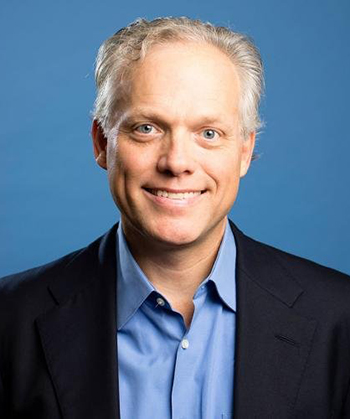
Richard W. Miller, PhD
Richard W. Miller is professor of philosophical and systematic theology and professor of sustainability studies at Creighton University. He is a contributor to and editor of seven books including God, Creation, and Climate Change: A Catholic Response to the Environmental Crisis, which won a 2011 Catholic Press Association of the United States and Canada book award in the faith and science category.
He has been invited to speak around the world on the ecological crisis, including the United Nations Framework Convention on Climate Change Conference (COP 22, 2016, Marrakech, Morocco), and the problem of God’s providence and human suffering.
He was awarded (2021) the “Steward of God’s Creation” award from the National Religious Coalition on Creation Care. This award is bestowed annually on an individual who “exhibits courage and commitment in the keeping of the earth in a heroic, distinguished, andeffective manner.” He was one of the original founders and remains an advisor to what has become the Open Forest Protocol, a unique blockchain protocol to solve the central problem hindering global efforts to conserve and restore forests around the world in order to draw 200 billion tons of CO2 out of the atmosphere.

Warren E. Tolman, JD
Warren E. Tolman has served as a member of both houses of the Massachusetts General Court. He was the Democratic nominee for Lieutenant Governor of Massachusetts in 1998 and was a candidate for Governor of Massachusetts in 2002, and Massachusetts Attorney General in 2014.
Tolman received a BA in Economics from Amherst College and a JD from Boston College Law School. He was elected to the Massachusetts House of Representatives in 1990 and the Massachusetts Senate in 1994. As a lawmaker, Tolman worked on tightening campaign finance laws and ethics statutes and was a leader in the 1990s movement to curb tobacco use and oppose the political influence of the cigarette industry. From 1987 to 1999 he was an attorney with Burns & Levinson LLP.
In 2002, he became an Of Counsel for Holland & Knight. He has argued in court for reforms of the indigent defense law in Massachusetts. In 2013 he became Senior Vice President for the investment firm EnTrust Global.


